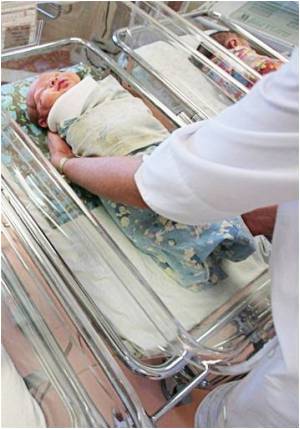A new US study has found that mothers do get sufficient sleep in their babies' first few months, but it is not quality sleep.

But the study also found that sleep is frequently disrupted with the women typically being awake for a total of two hours a night which was worrying as sleep problems and exhaustion may contribute to postpartum depression and impact work performance.
Hawley E. Montgomery-Downs said the study challenges a central assumption about new mothers' typical sleep patterns.
She said the general assumption had been that most new mothers are not getting enough hours of sleep so the advice on how to combat daytime fatigue has focused on countering sleep deprivation, such as nap when your baby naps.
That sleep pattern, Montgomery-Downs said, is similar to what is seen with certain sleep disorders, such as sleep apnea, where people log enough hours in bed, but get little restorative, good-quality sleep.
Depending on how often a new mother is waking up, she may get few or no full cycles of sleep, Montgomery-Downs noted.
One tactic, she suggested, could be for breastfeeding mothers to find time to pump milk and store it in bottles so that they do not have to be the one to always get up with the baby.
The findings are based on 74 new mothers who were followed between either the second and 13th week of their infants' lives, or between the 9th and 16th week.
The findings were published in the American Journal of Obstetrics and Gynaecology.
Source-ANI
 MEDINDIA
MEDINDIA



 Email
Email










